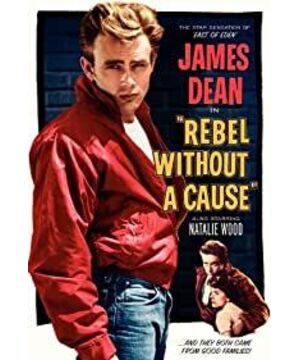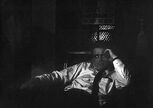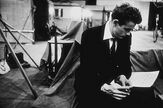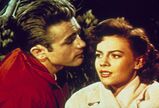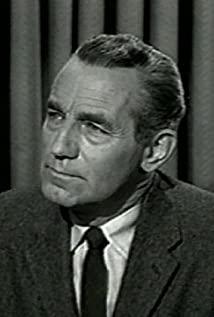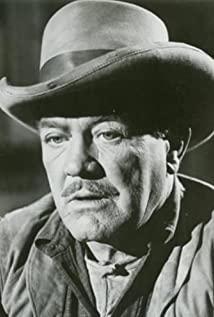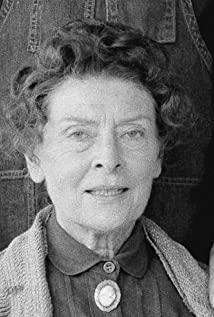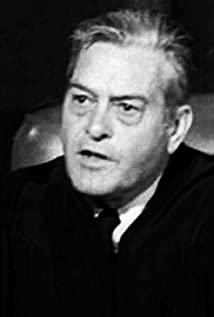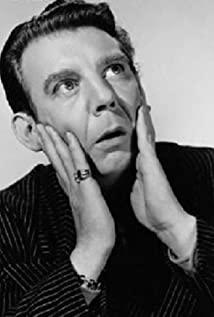Jim is a "problem boy" and I don't really see where his problem is. His father cared about him, and had been trying to understand him, but he was submissive and unmanly in the face of his garrulous, bossy, and critical mother and grandmother. Jim tried many times to arouse his father's courage, hoping to get support and affirmation from him. Before he went to the desperate gambling game with Burke, he repeatedly asked his father's advice, but his father did not have the courage to give him a message. Answer from the heart. After Burke died, he offered to go to the police station to give himself up and explain everything, but he also failed to get support. Communication with my father was always in vain, so disappointment pushed my father to the ground angrily. It can't be said that his mother and grandmother don't love him, they take care of his life and keep moving in order to make him "good friends", which is comparable to Meng's mother moving three times. But there was a dull, suffocating atmosphere in the family, and Jim couldn't stand it. He almost broke down. He didn't think he could live in the family any longer. What Jim needs is the affirmation of courage and dignity, the desire is independent personality, this is his resistance.
Julie is a "problem girl", her problem lies in a serious Electra complex. She was dressed up in a flamboyant manner, and she kissed her father eagerly, but her excessive expression aroused his disgust, which led to contempt and scolding. Her father did not try to understand her and cared about her. This emotional need could not be satisfied, so she behaved very frivolously outside. She became the girlfriend of Burke, the leader of the troubled teenager. What she needed was a male affection to replace her father's. Location.
Plato, timid and cowardly, is full of loneliness. It can be guessed from the film that his father was a rich man, but abandoned their mother and son. Due to the lack of father's love, he always "run away" since he was a child, and finally his mother could not bear it and went to Hawaii alone, with only a black maid by his side to take care of him. He has a strong desire for fatherly love and a strong and masculine man to be his spiritual guide and support.
The police station is their meeting point, and the three personalities are clearly highlighted. Jim was drunk and lying beside the rubbish heap, clinging to the toys abandoned by others, curled up to sleep, his expression was lonely and bitter, but when he fell asleep, his expression seemed to be more warm and safe than the family. . He was mad at the police station, but after meeting Officer Reeve, his psychological defense line collapsed. The masculinity of the police officer was what he repeatedly looked for in his father, so he immediately developed trust and kindness to the police officer. It's hard to imagine how angry and desperate he was when he vented his emotions on the table, which is the same as the drunken sleeping garbage dump, and the close-up of the dead Plato zipping his jacket and the socks of different colors on Plato's feet at the end of the film. The most memorable scene in the film.
Julie and Plato have fewer roles in the police station. However, the disappointment on his face when he heard that the police just called her mother to pick her up showed the contradictions of the task. And when the half-drunk Jim was about to take off his jacket to the shivering Plato, the first seed of closeness and trust was planted in the latter's heart. What Jim needs is affirmation and trust, and what Plato needs is warmth and support.
School conflicts and cliffhangers are part of the spiritual world of teenagers. It should be said that Jim is sober and sane, he is not as arrogant and fearless as he appears. In the face of provocation, he repeatedly gave in. When he started, he was always reluctant to take a weapon or hurt the opponent. He felt that this kind of fighting was pointless. To fight, he said, I don't want to cause trouble. Before "the coward run," he asked, why do we do this? But Burke said, "There's got to be something to do, right?" The gamble of life, for Burke, was just emptiness and boredom, and for Jim it was so that no one could see him as a coward . This kind of cowardice was something he had truly experienced from his father and was heartbroken, and therefore he regarded it as more unwilling to accept than death.
It should be said that the film not only talks about the estrangement between the two generations, but also focuses on the love of the father, the role of the father, as well as courage and masculinity.
View more about Rebel Without a Cause reviews


